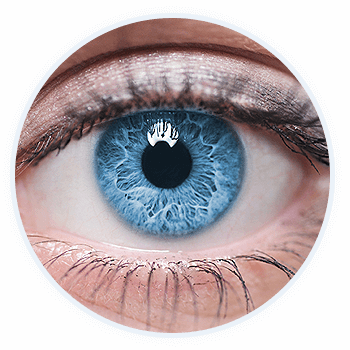
Cataracts develop when the natural lens of the eye becomes cloudy. Without cataracts, the lens is transparent.
When this happens, proteins found in the lens clump together instead of evenly distributing. Your lens handles focusing the light entering the eye on the retina.
From there, light is sent to your brain as a nerve signal to communicate what you are seeing. Experiencing cataract symptoms doesn’t usually occur until they become large enough to interfere with your vision.
This will result in changing the transparency of the lens and how it focuses light on the retina. Once a cataract clouds the lens, you might notice your vision is blurry. At first, these changes are barely noticeable.
Many people may not realize they have cataracts for years or decades. But over time, cataracts will further impact your vision.
Keep reading to learn more about cataracts and to find out if your blurry vision could be due to cataracts!
Cataract Progression
One of the most common initials signs of cataracts is blurred vision. With time, blurred vision becomes worse. Eventually, you may start to feel like everything you see is blurry.
Besides the progression of blurry vision, your vision may also ‘tint,’ leading to color changes. The tint starts out as a yellowish color before giving way to a brownish hue.
It may seem annoying at best, but you may eventually find it hard to distinguish colors like purple and blue. You may also find it harder to perform activities like reading as a result.
Symptoms of Cataracts
There are many symptoms associated with cataracts. The most common ones include:
Blurry vision –
Almost everyone who has cataracts experiences blurry vision. This occurs when the lens is unable to focus light sharply on your retina.
Halos around light –
When staring at lit or bright objects surrounded by darkness, you might see a halo effect around the light or object. Driving at night may become problematic.
Double vision –
Having a cloudy lens can form a pattern that splits an image. As a result, you may see a less clear image appear next to the main image of a person or object.
Light sensitivity –
You might notice that sunlight or bright light disturbs you or even causes you pain.
Cloudy vision –
If it seems like you are looking at things through a dirty window, this may be a sign of a developing cataract.
If you notice any changes to your vision, see your eye doctor sooner than later. Even if you find out you don’t have cataracts, they can rule out any other eye conditions that you may have.
Concerned about cataracts or the possibility of needing cataract surgery? Schedule a dilated eye exam at VisionPoint Eye Center in Bloomington, IL today!









